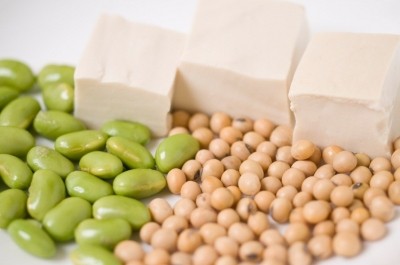Heavy intake of animal protein points to higher risk of death: Study

The study - among the largest of its kind - appears in the latest edition of Jama Internal Medicine, where data was evaluated from two long-term epidemiologic studies in human subjects.
Researchers found animal protein intake was weakly linked to a higher risk of death, particularly cardiovascular-related. Subjects following a plant protein-based diet were associated with a lower risk of death.
However, this animal protein observation were limited to subjects with at least one unhealthy lifestyle factor that included smoking, high alcohol intake, overweight or obesity, and physical inactivity. The observations were not apparent in subjects without any of these risk factors.
Protein origins a factor?

Whilst the result is unsurprising to many, the findings do raise questions of what defines a macronutritionally-balanced diet.
Although protein quantity in the diet has demonstrated certain effects, from a broader nutritional perspective, protein sources seem to strongly influence other dietary aspects and could well be a critical factor for health outcomes.
Researchers from the Massachusetts General Hospital (MGH) in the US rounded up 131, 342 participants of which 85, 013 were women (64.7%) and 46, 329 were men (35.3%). Mean age was 49 years.
The individuals were taken from two studies that have been ongoing since the 1980s - the Nurses' Health Study (NHS) and the Health Professionals Follow-up Study (HPFS).
They were asked to complete health questionnaires bi-annually, and supply dietary information emphasising how often they ate portions of particular types of food during the preceding year. This was carried out every four years.
After accounting for lifestyle and other dietary risk factors, the team looked at protein sources from animals (meat, eggs or dairy) and plants (breads, cereals, pasta, beans, nuts and legumes).
All in all, the medical team evaluated more than 30 years of data for NHS participants and 26 years of data for HPFS participants, totalling more than 3.5 million human years.
“We suspect the different sources of animal protein between the two groups may contribute to the stronger results in the unhealthy lifestyle group," said Dr Mingyang Song, a research fellow in the Massachusetts General Hospital (MGH) Clinical and co-author of the report.
"Our findings suggest that people should consider eating more plant proteins than animal proteins, and when they do choose fish and chicken.”
He added that future studies should examine the mechanisms underlying the different effects of plant and animal proteins on overall health - along with different sources of animal proteins.
Protection from plant protein?

At present, research looking into protein sources and death rates remain scarce. In a group of postmenopausal women, substitution of plant protein for animal protein was linked to a lower mortality.
In addition, a positive link between animal protein and mortality was found in another study using the National Health and Nutrition Examination Survey.
However this data had a number of limitations which made firm conclusions difficult. These included the relatively small sample size, and insufficient data on detailed food sources of animal and plant protein.
“This is a high quality analysis of two long-term observational studies. In this study the people eating the most plant protein were slimmer and less likely to smoke than those eating the least, which would be expected to reduce their risk for mortality,” said Tim Key, professor of Epidemiology & deputy director of the Cancer Epidemiology Unit, at the University of Oxford.
“Overall, the study adds to the view that healthy diets should emphasise plant foods, including plant sources of protein, and that intakes of animal source foods – especially processed meat – should be low.”
Dr Ian Johnson, nutrition researcher and Emeritus fellow at the Institute of Food Research (IFR) in the UK, said: “This interesting and robust work seems to support the growing consensus that diets based largely on plant foods are better for long term health than diets containing large quantities of meat and dairy products but it tells us little about mechanism.”
“It is far from clear whether plant proteins are protective or animal proteins are detrimental to health, or whether these protein levels are simply markers for something else.”
Source: JAMA Internal Medicine
Published online ahead of print, doi:10.1001/jamainternmed.2016.4182
“Association of Animal and Plant Protein Intake With All-Cause and Cause-Specific Mortality.”
Authors: Edward Giovannucci et al.























